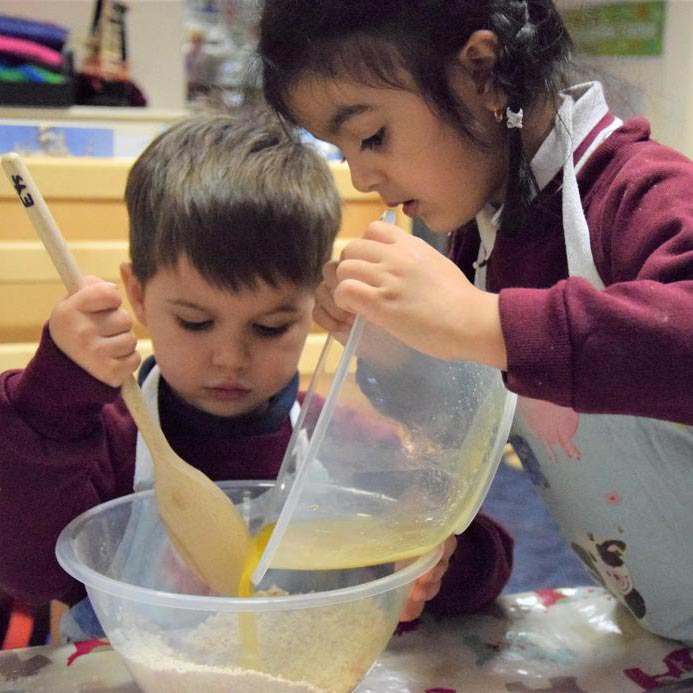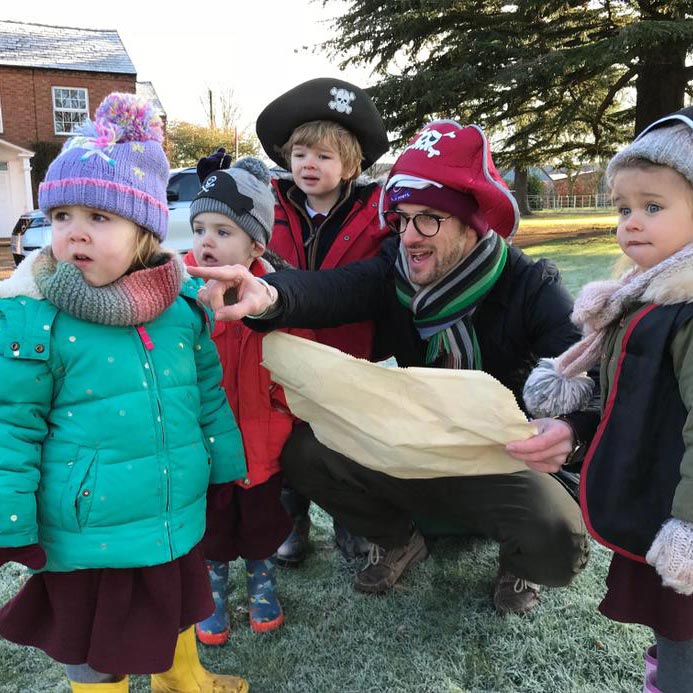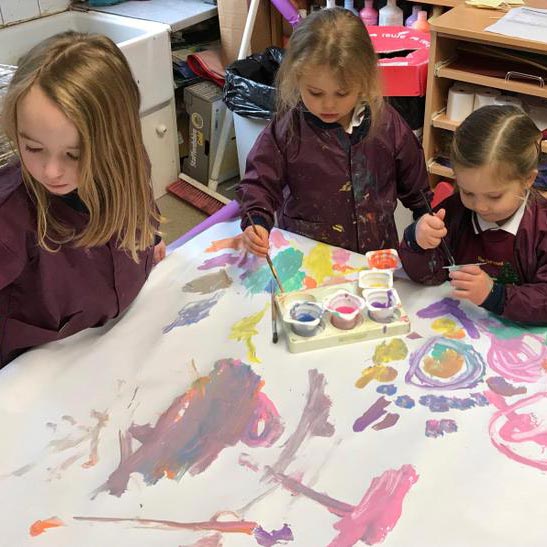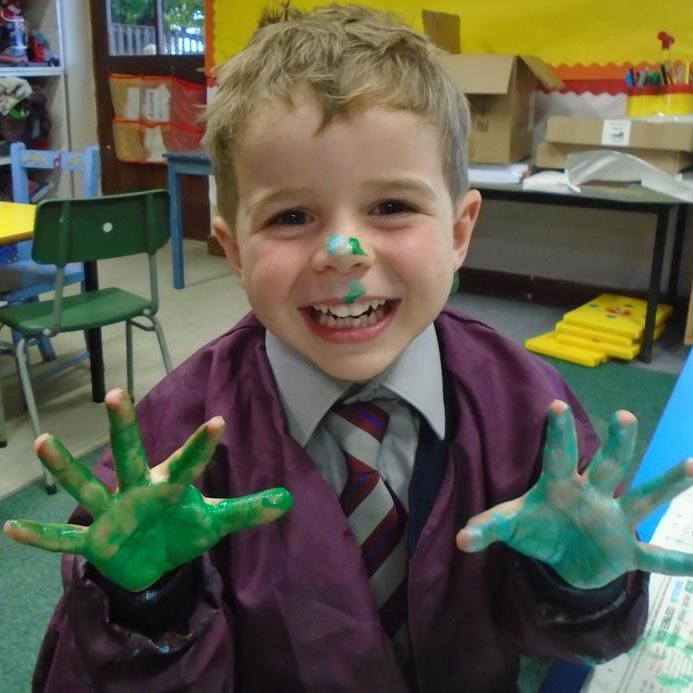Early Years
We believe that every child is an individual who develops at his or her own rate. Exceptional nurturing and outstanding teaching in Early Years, enables every child to achieve their full potential.
Our team of specialist Early Years Teachers lead the learning from age 2 (academic year of 3rd birthday) to the end of the Reception year, supported by dedicated Early Years Assistants.
We enable plentiful outdoor and indoor learning opportunities on a daily basis, making regular use of the 30 acres of school grounds, as well as accessing the School’s specialist teachers and resources to facilitate children’s learning. Your child will be empowered to develop their self-confidence and self-esteem, as well as independence.
As a parent, you will be fully informed about your child’s time in Early Years through ‘Famly’, which allows us to share photos, videos and messages with parents and grandparents via their mobile phone, tablet or laptop.
‘Your child's individual learning journey begins here...’

Baby & Toddler Group
We welcome parents and carers with babies and toddlers to our afternoon sessions

Little Crofters ‘Butterflies’
From the academic year of your child's 3rd birthday, we offer a nurturing start to their educational journey

Little Crofters Pre-school
Little Crofters Pre-school, 'Frogs' and 'Rabbits' groups, offers a wealth of new, challenging learning opportunities
The Early Years Curriculum
In Early Years, learning is built around themes and interests. Children are given opportunity to contribute to the themes, and parents are encouraged to actively support us by bringing in artefacts and photographs from home.
We follow the statutory Early Years Foundation Stage, which encompasses seven Areas of Learning:
Prime Areas - areas children develop from birth
- Communication and Language
- Physical Development
- Personal, Social and Emotional Development
Specific Areas - areas which children progress through as they become older
- Literacy
- Mathematics
- Understanding the World
- Expressive Arts and Design
The progress of children is closely monitored throughout each academic year by the child's Key Teacher. We use an electronic system called 'Famly' to enable each child's Learning Journal to be kept online; accessible by parents at all times.
At the end of the Early Years Foundation Stage, each child is assessed according to the statutory Early Years Foundation Stage Profile, to ensure a smooth transition to Key Stage 1.
Specialist Teaching in Early Years
- Little Crofters Butterflies - Music, optional French
- Little Crofters Pre-school - Music, Forest School, French
- Reception - Music, Drama, Forest School, French, Physical Education, Swimming
Forest School
Forest School is taught on site by our specialist Forest Leaders, Ms Caroline Beale, Mrs Angela Mills and Mrs Emma Derbyshire. Pre-school and Reception children participate in Forest School sessions as part of their weekly timetable.
With two acres of grounds for the children to explore, including a lake, which has security fencing around its perimeter, Forest School offers them the opportunity to take supported risks appropriate to themselves and the environment.
“Outdoors is different to indoors and this is exactly why it matters to children".
The children are able to enjoy Forest School all year round. Rain and colder climates allow them to experience and learn about different weather conditions and how to keep themselves warm and dry. For reasons of safety, windy weather contingency plans allow alternative activities to be planned away from nearby trees.
“There is no such thing as bad weather, only bad clothing”.
In Forest School, trust is central… the adults and children must trust each other to follow the rules. Adults spend time getting to know and understand children in their setting. Similarly, the children should feel safe with the adults if the Forest School experience is to be a positive one. Adults should also feel assured that children will respond in predictable ways.
The learning is play based and, as far as possible, child initiated and child led. We allow time and space for the children to make their own choices and express themselves in open ended creativity.
“Open ended play promotes cooperative play, with its higher cognitive challenge for interacting with peers”.










